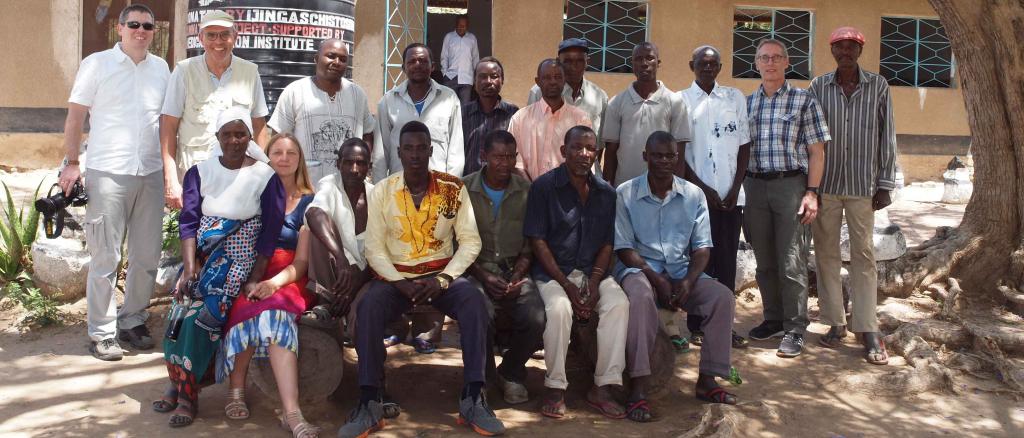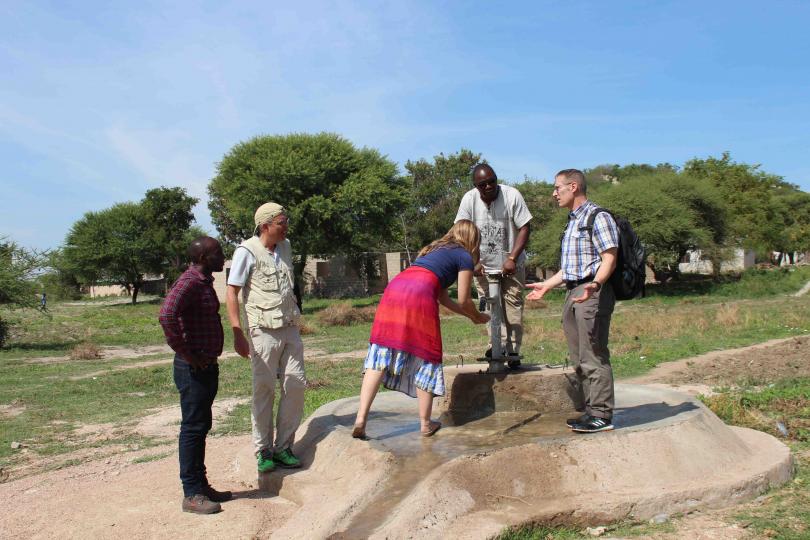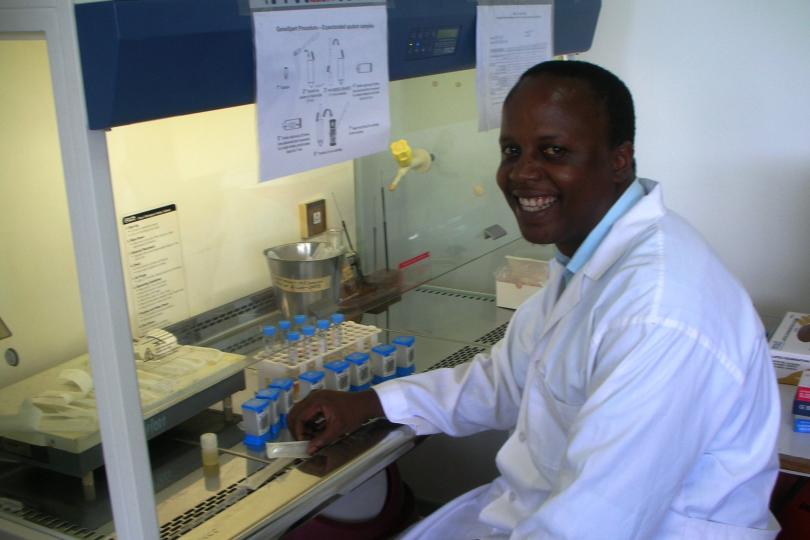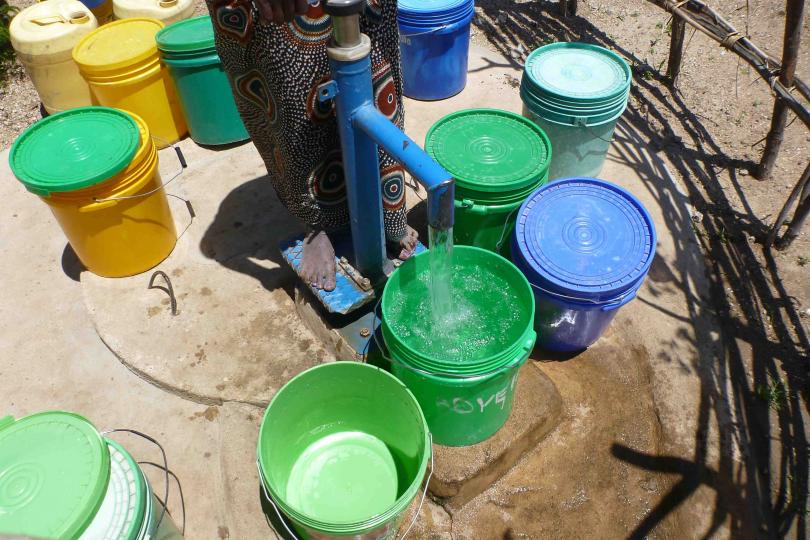
Project management: Julius Maximilian University of Würzburg (JMU), Prof. Dr. Matthias Frosch
Cooperation partners: Deutsche Lepra- und Tuberkulosehilfe e.V. (DAHW), Missionsärztliches Institut Würzburg, University Hospital of Würzburg (UKW)
Partner country: Tanzania
Local partner organizations: Catholic University Health and Allied Sciences (CUHAS) in Mwanza and Bugando Medical Center Mwanza (BMC)
Term: 5 years
CURRENT NEWS:
The exchange program between the Julius Maximilians University of Würzburg and the Catholic University of Health and Allied Sciences focuses on the education and training of medical professionals and students.
Learn more about the students and the EKC Würzburg-Mwanza in the film:
Among the activities enacted together are joint research projects and exchange programs for master’s students, next-generation physicians training to be specialists, and doctoral candidates. Collaboration is also performed in advanced clinical training. In particular, a non-profit program has been implemented toward combatting schistosomiasis, a parasitic disease that is widespread around Lake Victoria.
The creation of the Else Kröner Center for Advanced Medical & Medical Humanitarian Studies Würzburg – Mwanza, Tanzania is planned to enable the various activities to be strategically clustered and utilize the synergetic effects between the different initiatives in distinctly better ways. This deals first and foremost with the educational and advanced training of medical professionals and students, development of a joint curriculum, improving clinical healthcare for the population at the hospital, and providing improved healthcare along with public health campaigns on the community level all around Lake Victoria.
Roughly 16 million people live in the region around Mwanza on the shores of Lake Victoria – above all in remotely situated and not easily accessible villages at a distance from Mwanza, as well as on offshore islands. The expansion of the local health system and infrastructure was unable to keep pace with the population’s rapid growth. The lack of sanitary facilities, basic infrastructure and health services has led especially to many people who live there being afflicted with NTDs (neglected tropical diseases) associated with poverty. For instance, over 70 % suffer from schistosomiasis, a worm infection transmitted via contact with fresh water which, inter alia, leads to intestinal, liver and spleen damage, and in the worst case is fatal. All of the project partners there have jointly collaborated to implement a multidisciplinary program oriented to the communities to combat schistosomiasis, advance health education and improve the supply of medication.
Combatting schistosomiasis is not going to be the only component of work at the Else Kröner Center. Beyond elements revolving around academic relationships and hospital medicine, health programs are supposed to be integrated from which the population directly benefits. For example, more of a focus is going to be placed on the diagnosis and treatment of other NTDs such as glaucoma. Intended is that over 300 healthcare professionals receive further training toward educating adults about NTDs within the course of village campaigns.
In addition, the focus is also on improving the training of young academics and clinicians, for example, as well as the training and further training of medical professionals in various areas of specialization At least 10 medical students are going to take part in a several-week-long exchange program between the Julius Maximilian University of Würzburg and the Catholic University of Health and Allied Sciences. Apart from that, a research program focussing on doctoral training is going to be established to further improve medical care in Mwanza. And last but not least, staff at the clinics in Mwanza and Würzburg will be trained in using technical equipment.
Here you can find more information about the Else Kröner Center for Advanced Medical & Medical Humanitarian Studies Würzburg – Mwanza, Tanzania. You can also find more information on the website of the Julius Maximilian University of Würzburg.
Interview with Dr. Franziska Pietsch, Scientific Coordinator of the Institute for Hygiene and Microbiology at the University of Würzburg.
A lot of administrative things were taken care of during the preparatory phase, for instance hiring personnel, concluding a cooperation agreement and obtaining an ethics vote.
Calls for applications for the first two positions for doctoral candidates within the framework of the Else Kröner Center for Advanced Medical & Medical Humanitarian Studies Würzburg – Mwanza, Tanzania were already able to be posted and staffed last year. We are currently working on putting the research projects for the two physicians from Mwanza into concrete terms so that they can commence work on their doctoral theses as soon as possible, both of which are being supervised by professors from Mwanza and Würzburg.
In terms of exchanging medical specialists, we have come to an agreement on the specific need at the university hospital in Mwanza, the Bugando Medical Center, with the physicians there and put together corresponding “doctor tandems” who want to learn from each other in the course of visits at the respective homeland hospital.
For the joint battle against schistosomiasis, a worm infection extremely widespread in the region around Lake Victoria, staff have been working on-site since the summer of 2020 on the preparations for conducting the baseline survey planned for the spring of 2021. Among other factors, the survey is intended to poll knowledge about the disease and to what degree local health centers are equipped. Working together with the Tanzanian national control program and local authorities, a treatment is supposed to be offered that goes beyond the usual schoolchildren until now to include all other endangered groups of people as well. To be able to get this endeavor on its feet and provide it with a sustainable perspective, training courses are supposed to be offered at the local health centers in which the diagnosis, treatment and prevention of schistosomiasis are taught along with basic laboratory methods for diagnosing neglected tropical diseases (NTDs) such as schistosomiasis. With the help of schooled personnel and building on the momentarily ongoing prevalence and morbidity studies regarding schistosomiasis together with the baseline survey scheduled for the spring, the intention is to raise the population’s awareness of this infectious disease and advise people accordingly.
We plan to do a great deal in the current year. The preparations for the exchange program involving medical students and physicians training to become specialists are already up and running with an eye to the summer and fall of this year. To the extent that the situation in both countries permits them, we want to make the several-week-long stays at partner universities and hospitals possible as planned. This would be commensurate with the exchange of 5 Tanzanian and 5 German students, as well as two “doctor tandems” from different specialized fields.
Yet another point on the agenda is posed by the bilateral Master’s program we want to establish together with the colleagues from Mwanza. The goal here is to bring together the levels of expertise in infectiology, epidemiology and clinical biometry from both locations and offer this expert knowledge and experience in a Master’s program open to students from both universities. The various modules are supposed to be taught by the respective experts at the partner universities and hospitals.
Last but not least, we hope to be able to finally inaugurate the Else Kröner Center officially too towards the end of the year within the course of the CUHAS Scientific Conference scheduled for November 2021 in Mwanza.


